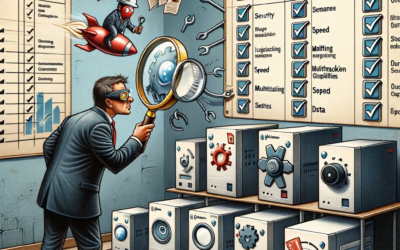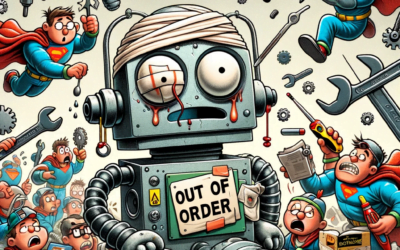Small tool tracking software helps you keep a better eye on your critical equipment. Without small tool tracking software, you run an increased risk of losing assets, accountability, and speed.
When you use small tool tracking software, you’ll benefit from:
- Fewer lost assets
- More time
- Fewer duplicates purchased
- More transparency
- A clear and automated fixed asset register

What Is Small Tool Tracking Software?
Small tool tracking software is a system that allows you to log, monitor, and track your small tools and equipment. Each piece of equipment gets a unique profile, ready to be populated with data.
In other words, you’ll be able to track each spanner, each laptop, and each drill individually, giving you a clear overview of which assets you own and how they’re behaving.
Small tool tracking software is a type of asset tracking software. Asset tracking software gives you a wide range of features to help you track your tools and equipment better, and to create a clearer overview of everything you own.
Using Asset Tracking Software To Track Tools
Asset tracking software allows you to track unique assets using asset tags. Then, once you’ve logged and tagged your assets, you’ll be able to speed up a wide range of operations.
For example, you’ll be able to use your asset tracking software as equipment checkout software, tracking all of the bookings and check-outs your assets go through.
You’ll also be able to implement fixed asset management operations to track depreciation and extend your asset usage. When you track, monitor, and manage your assets, potential gaps become more transparent, allowing you to take steps to fix them.
Overall, when you track your small tools with asset tracking software, you lose fewer assets and get a much clearer view of where your assets are going and how they’re behaving.
Fixed Asset Tags
Fixed asset tags are physical tags you stick to your assets. These can then be used to link your physical assets to their digital counterparts on your asset tracking software.
Every time you scan an asset’s tag, the corresponding profile will open, the last seen location will update, and the user who scanned the tag will be logged.
This allows you to monitor how all of your assets move and how they’re all being interacted with. This allows you to pinpoint where assets are should issues occur, as well as optimise asset movements between locations, saving you money on petrol.
Fixed Asset Tracking
After you’ve logged your assets, you’ll also be able to start using automated fixed asset tracking functionality. With effective small tool tracking software, every time you change any asset data, this will be reflected on an exportable fixed asset register.
Therefore, you’ll have a register of all of your logged assets and all of the relevant data against them. You can use this to indicate all of the small tools you own and find any gaps that need to be filled by purchasing more equipment.
Once you’ve exported your fixed asset register, you can take it further, too. For example, you’ll be able to use it to view business expenses, to gain necessary tax breaks, and send it off to relevant insurance companies.
Not only does a fixed asset register show you all of the assets you own and data related to them, but it also indicates that you own assets and are using them responsibly.
RFID Fixed Asset Tracking
Expanding on this, when it comes to small tool tracking software, you will also be able to use RFID fixed asset tracking to make a few operations simpler.
As QR code and barcode fixed asset tags require a line of sight to be scanned, audits and asset discovery can take a bit of time to complete.
RFID asset tags remove the need for this, as RFID systems don’t require a line of sight to scan and discover asset tags. You simply need a third party reader that can scan tags from a distance and with no line of sight.
This means that you’ll be able to audit your small tools from a greater distance and verify that they’re in the correct location at much greater speed and with much greater ease.
Other Asset Tracking Software Applications
Once you’ve logged and tagged your assets, there are many different ways you can track them. As you can add any information to an asset, you’ll be able to tailor your asset tracking software to your unique needs.
Therefore, if you’re using your asset tracking software for training purposes, you’ll be able to add attachments, such as manuals, to your assets. If you need to run consistent insurance audits, you’ll be able to do this too.
Helpful features, such as issues management and equipment bookings, allow you to monitor asset performance and maintenance alongside their usage and location, giving you the best possible overview of how your assets are being used and how they’re behaving.
itemit’s Small Tool Tracking Software
itemit’s small tool tracking software is scalable, meaning you’ll be able to track any assets within the system. This means that no matter your industry, you’ll be able to use the system to gain more accountability over your asset register.
So, if you’re implementing construction equipment tracking, you’ll be able to log small tools and scale to IT asset management operations, too.
With itemit, you can mix and match your asset tracking technologies, also, meaning you’ll be able to use RFID tags for your small tools and high-value collections while using QR codes and barcodes for the rest of your asset list.
To find out more about how itemit’s asset tracking software can help your business, you’ll be able to contact the team at team@itemit.com. You can also fill in the form below to start your 14-day free trial.
Small Tool Tracking Software
Choose a better way to track your assets
Start your free 14-day trial now
Instant access. No credit card details required.
Related articles
Tips For Choosing The Right Equipment Management Software
Want to know how to choose the right equipment management system/software so you can track your assets? Read this article now to find out!
How To Reduce Equipment Downtime
Would you like to know how a fixed asset register can help you to reduce asset downtime? read this article now to find out!
GPS Versus QR Codes: Which Is Better?
Not sure whether to track your ICT asset register using GPS or QR code technology? Read this article now to find out why QR codes are better!



